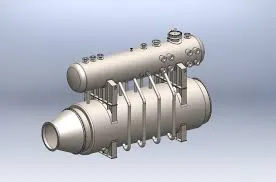Boiler Solutions for Efficient Metal Processing Operations and Enhanced Production Capabilities
Boiler Systems for Metal Processing Companies Efficiency and Reliability
In the metal processing industry, the demand for high-quality products and efficient operations is paramount. One of the critical components that contribute to achieving these goals is the boiler system. Boilers play a vital role in generating steam and hot water, which are essential for various processes such as heating, drying, and cleaning metal products. This article explores the importance of boiler systems in metal processing companies, focusing on their design, efficiency, and maintenance.
The Role of Boilers in Metal Processing
Boilers are devices that convert water into steam by applying heat, usually generated through burning fuel. In metal processing, steam is often utilized for heating processes, such as preheating metal before forging or bending. Additionally, steam is essential for cleaning metals, as it effectively removes contaminants and prepares surfaces for further processing or coating.
The versatility of boiler systems allows them to cater to various applications within the metal processing industry. Whether it’s a small workshop or a large manufacturing facility, a reliable boiler system can significantly enhance productivity and product quality.
Efficiency Matters
The efficiency of a boiler directly impacts operational costs and environmental sustainability. In metal processing operations, where heat demands can be substantial, a high-efficiency boiler can lead to significant savings in fuel consumption and energy costs. Modern boilers are designed with advanced technology that allows them to achieve efficiency ratings exceeding 90%.
One such advanced technology is the adoption of condensing boilers, which utilize the heat from exhaust gases to preheat the incoming water. By maximizing heat recovery, these boilers provide a more sustainable and cost-effective solution for metal processing companies. Additionally, the use of high-efficiency burners and controls can optimize combustion, further enhancing performance.
boiler for metal processing company

Choosing the Right Boiler System
When selecting a boiler system, metal processing companies must consider several factors, including the specific heat requirements, the nature of the processes involved, and the available space for installation. Common types of boilers used in the industry include fire-tube boilers, water-tube boilers, and electric boilers. Each type has its advantages and is suitable for different applications.
Fire-tube boilers are favored for their simplicity and ease of maintenance, while water-tube boilers are preferred for their ability to handle higher pressures and steam outputs. Electric boilers, on the other hand, offer a clean and efficient alternative, especially in environments where emissions are a concern.
Maintenance for Optimal Performance
Regular maintenance of boiler systems is crucial to ensuring safety and efficiency. Metal processing companies should implement a proactive maintenance program that includes routine inspections, cleaning, and the replacement of worn components. Neglecting maintenance can lead to decreased efficiency, increased fuel costs, and even hazardous situations such as boiler explosions.
Training personnel on proper boiler operation and maintenance practices is also essential. Understanding the boiler's operational limits and indicators of potential issues can prevent unexpected downtime and costly repairs.
Conclusion
In conclusion, boiler systems are integral to the operations of metal processing companies. Their role in generating steam and hot water for various processes underscores their importance in ensuring product quality and operational efficiency. By investing in high-efficiency boiler systems and maintaining them diligently, metal processing companies can enhance their productivity while reducing environmental impact and operational costs. As the industry continues to evolve, the reliance on advanced boiler technology will become increasingly critical in meeting the demands for quality and efficiency in metal processing.
-
Custom Steam Boilers Manufacturer | AI-Enhanced EfficiencyNewsJul.31,2025
-
Top Electric Steam Boiler Makers | AI-OptimizedNewsJul.31,2025
-
Top Electric Steam Boiler Manufacturers - High Efficiency SolutionsNewsJul.30,2025
-
Top Electric Steam Boiler Manufacturers – Efficient Industrial SolutionsNewsJul.29,2025
-
Top Electric Steam Boiler Manufacturers | Reliable Industrial SolutionsNewsJul.29,2025
-
OEM Steam Boiler Solutions for Custom Needs | High Efficiency & VersatilityNewsJul.29,2025

